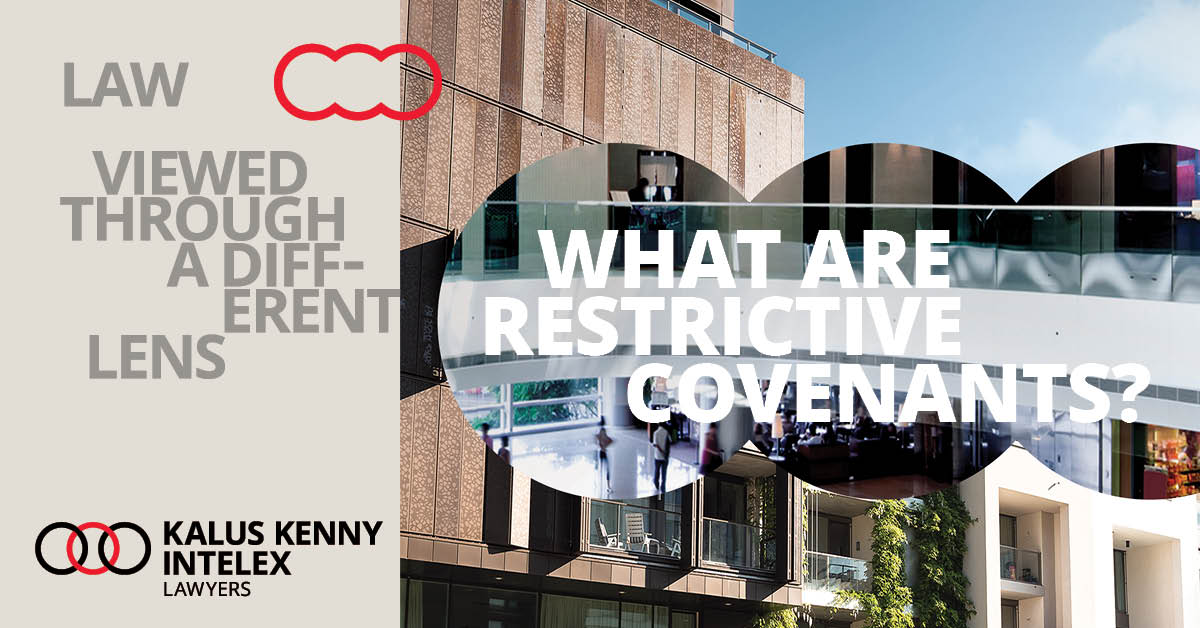A restrictive covenant is an agreement between a property owner and another party, which limits the way land can be used and/or developed. There must be “burdened land” (the land that is restricted by the covenant) and “benefitting land” (the land that enjoys the benefit of the covenant and can enforce the covenant).
A restrictive covenant is usually imposed by a neighbouring or nearby property owner who wishes to preserve the value or enjoyment of its property. Some examples of common types of restrictive covenants are:
- Single dwelling covenants: only one house can be erected on the Property;
- Building envelope covenants: a building can only be erected in a certain position on the Property;
- Building materials covenants: a building on the Property can only be constructed with certain building materials; or
- Use covenant: a Property must not be used for specified purposes like a petrol station, supermarket, pub etc.
Restrictive covenants run with the land and bind successors in title. A title search will disclose if a Property is encumbered by a restrictive covenant.
Some restrictive covenants have a date when they end (lapse date). However, most don’t have a lapse date, which means that the restrictive covenant will remain in full force and effect until it is removed.
Without express agreement between the owners of the benefitting land and the burdened land, a restrictive covenant is very difficult to remove or vary which can only be achieved by Court order, by obtaining a planning permit (however, this option would not be available if there are any objections) or by a planning scheme amendment.
As restrictive covenants run with land, it is important to carefully review the title to the Property (before signing a contract of sale) to check if there is a restrictive covenant which will limit the intended use or development of the Property.



